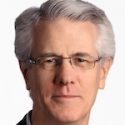WARF Discovery Challenge seeks to inspire grad student and postdoc research
Last year more than 125 graduate students and postdocs competed for cash prizes and research grants in WARF’s inaugural Discovery Challenge. But one research associate in the School of Medicine and Public Health received an unexpected distinction.
Shakti Goel, who submitted a poster with Professor K. Kent and Senior Scientist Lian Guo describing a new use of insulin to treat narrowed arteries, now can add a pending U.S. patent application and “inventor” to his resume.
WARF, the private nonprofit patenting, licensing and investment organization for UW–Madison, reviewed all abstracts submitted to the competition and selected eight for submission to the foundation’s formal assessment process for patentable technologies. And, while only Goel’s was ultimately selected to receive patent protection, all fulfilled the primary goal of the Discovery Challenge.
“We want to encourage more students to participate in interdisciplinary research projects,” says Laura Heisler, director of programming for WARF. “The competition gives students and postdocs an opportunity to present their research to one another and to identify potential collaborators across a wide range of fields in the sciences and engineering, as well as from the arts, humanities and education.
“I don’t know if any other forum would be so daring. It has led me to three unconventional interdisciplinary collaborations, two of which continue to today.”
Matthew Starr
“We want to spark their interest in connecting with their peers from different parts of campus, as well as in joining the ranks of UW–Madison’s many successful inventors who have had the satisfaction of seeing — and benefiting from — their discoveries being commercialized as useful products in the world,” Heisler says.
The acceptance of discoveries for patent protection and licensing can bring sizable benefits to inventors, their departments, WARF and the university, which over the decades has received more than $1 billion from WARF in gifts earned through its licensing, legal and investment activities.
WARF hopes the second Discovery Challenge, which kicks off with poster abstracts of 500 words or less due next Monday, March 4, will inspire an even larger crop of young researchers to collaborate, discover and compete. Part one of this year’s challenge, the spring research competition, will be held May 20 in the Town Center at the Wisconsin Institutes for Discovery. It will be followed in the fall by a research competition that requires cross-disciplinary collaboration.
“What other event would put me across from a researcher studying the neuroscience of education?” asks Matthew Starr, a graduate student in material science. “I don’t know if any other forum would be so daring. It has led me to three unconventional interdisciplinary collaborations, two of which continue to today. The first Discovery Challenge was the seed of something great.”
Gagan Gupta, a graduate student in computer science, is part of the WARF Ambassador Program student group that developed the Discovery Challenge with WARF staff. He believes that real-world problems increasingly require solutions drawn from multiple, often unrelated disciplines.
“The Discovery Challenge creates a primordial soup of ideas, ranging from humanities to computer sciences. We are excited about what might yet evolve from it,” Gupta says.
Research collaborations rewarded with mini-grants of $5,000 in last fall’s competition include:
- Teaching tools developed by Elise Lockwood, a postdoc in education, and Bryan Gibson, a doctoral student in computer sciences, to improve students’ combinatorial (complex counting) problem-solving capabilities;
- Investigation of the use of medication to reduce the toxic effects of chemotherapy on the ovaries of cancer survivors by Elon Roti Roti, a postdoc in obstetrics and gynecology, and Karissa Tilbury, a grad research assistant in biomedical engineering; and
- Study of how to improve the diffusion of various medications through the brain to treat central nervous system disorders by Dan Wolak, a postdoc in pharmaceutical sciences, and the laboratory of Corinna Burger in neurology.
For an idea of what discoveries may come out of this year’s Discovery Challenge, members of the campus community and public can attend the May 20 poster session. Visitors are encouraged to browse the posters and ask many questions while they meet — and help prepare — UW–Madison’s inventors of the future.


